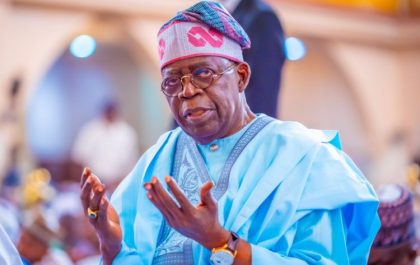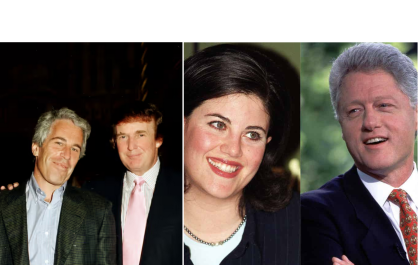The situation in Rivers State under suspended Governor, Siminalayi Fubara, is fast becoming one of Nigeria’s most intriguing political dramas, a story where loyalty, power, health, and political inexperience intertwine in dangerous ways.
Since assuming office in May 2023, Governor Fubara, a former state accountant-general, has been widely described as politically inexperienced, emotionally fragile, and increasingly isolated.
Those close to him whisper about his ongoing health challenges, including stress-related ailments and chronic fatigue, which have reportedly worsened due to the endless political siege mounted against him by his predecessor, Nyesom Wike, who’s the Minister of the Federal Capital Territory (FCT).
This physical and emotional strain is evident in his public appearances, as he often look overwhelmed, tired, and indecisive in his governance. Critics say that the office is too heavy for his shoulders; supporters insist it’s their turn, and he’s simply being harassed by political godfathers who won’t let him lead.
But here’s the real question: would this be happening if it were Wike in Fubara’s position? Absolutely not! Let’s consider the evidence: when Nyesom Wike was in office as Governor (2015-2023), no one, not even Abuja, and then Buhari, a former Army General and then President of the country, dared to challenge his authority in Rivers State. Whether it was through his legal dexterity, his populist charisma, his fearsome grip on the Peoples Democratic Party (PDP) structure, or his calculated use of state power, Wike made sure Rivers State was his political “Alawi”.
When the (All Progressives Congress) APC-led federal government attempted to deploy federal might in Rivers State during the 2019 elections, Wike stood his ground, challenged security agencies in court, and retained control of the state’s political machinery. His firm stance during the VAT collection battle with the Federal Inland Revenue Service (FIRS) positioned him as a nationalist figure standing for state fiscal autonomy. Even governors from other regions rallied around his boldness.
Wike dominated his local government structure, installed loyalists across all tiers of governance, and crushed internal opposition. The House of Assembly was practically an extension of “Adageorge”.
If Wike, or any politically seasoned governor, had suspended elected council chairmen, no one in Aso Rock would publicly question it.
There would be calculated silence, if not veiled support. Why? Because power respects power. Fubara, by contrast, does not yet command such fear or loyalty or the method consulting.
His health and inexperience have emboldened his enemies, inability to consult with the right people. This created doubt among allies, and drawn federal actors into what should ordinarily be a state affair. Comparing the Rivers situation to the one in Borno State, pundits have at various points questioned why it’s not attracting the Federal Government attention as Rivers situation is.
Recall that Borno State has faced a humanitarian emergency due to Boko Haram insurgency. In many local governments democratic governance had collapsed for years due to insecurity. Interim administrators or sole administrators were appointed in the absence of functional elections.
In spite of this, the President Bola Tinubu Presidency had dismissed it with what amounts to a wave of hand, saying, “Borno crisis is not the same as Rivers”. In defending Vice President Kashim Shettima, the Presidency recently claimed that it never criticized Governor Fubara for suspending the local government chairmen, and that the Borno situation (which Shettima spoke on) is “not the same” as that of Rivers State. Really? Meanwhile, Shettima, as a former Governor of Borno State, often spoke out about constitutionalism and the need to rebuild governance in these war-torn LGAs.
That’s what he recently referenced. Rivers State, on the other hand, is not under terrorist siege, it is not facing a war, its local government system has been intact.
What Governor Fubara did was to suspend elected council chairmen, most of them loyal to Wike, but was based on the constitutional expiration of their tenure. Yet the presidency argues that Shettima’s comments were not aimed at Fubara, but were a reflection on constitutional decay in certain northern states like Borno due to insecurity.
However, the timing and tone of Shettima’s remarks led many to believe they were a veiled jab at Fubara. This perception was made worse by the political alignment of the VP with Wike, and the continued silence of the presidency on the open intimidation of governance and crisis brewing in Rivers. What colour must double standard take before it can be named such? Again, in the face of the unfolding political drama in Rivers, which had seen the presidency walking a tightrope of political neutrality and silent favouritism in the teleguided Rivers crisis, President Tinubu has largely been quiet publicly, but insiders say he is wary of confronting Wike, a key political ally during the 2023 elections.
So, while Fubara’s actions are constitutional, and similar to what many governors have done in the past, his lack of political capital, and ability to consult correctly, coupled with his health rumors, and his timid disposition have left him vulnerable. Power, they say, is not in the seat, it’s in the strength to command it: Governor Sim Fubara may hold the highest office in Rivers State, but it is clear he is yet to wield its full power. His perceived ill health, naiveté, and the shadows of Wike continue to haunt his administration.
Every step he takes is scrutinized, not just by his people, but by the federal actors who doubt his capacity to endure, and this is the tragedy. In a political system like Nigeria’s, strength is often respected more than constitutional correctness. A sick, soft, and hesitant leader cannot survive a jungle of wolves. Until Fubara finds his political footing, finds the likes of former President, Olusegun Obasanjo, finds a truly competent media team, and regains his office, he will remain a Governor under siege.
From the foregoing, one key thing the Tinubu presidency and Nigerians need to reflect on is that, if democracy is to thrive in Nigeria, it must protect the weak from the powerful, not empower the powerful against the weak.
King Eze
www.tori4town.online
Related posts
Subscribe for newsletter
* You go receive the latest tori wen you put your email



